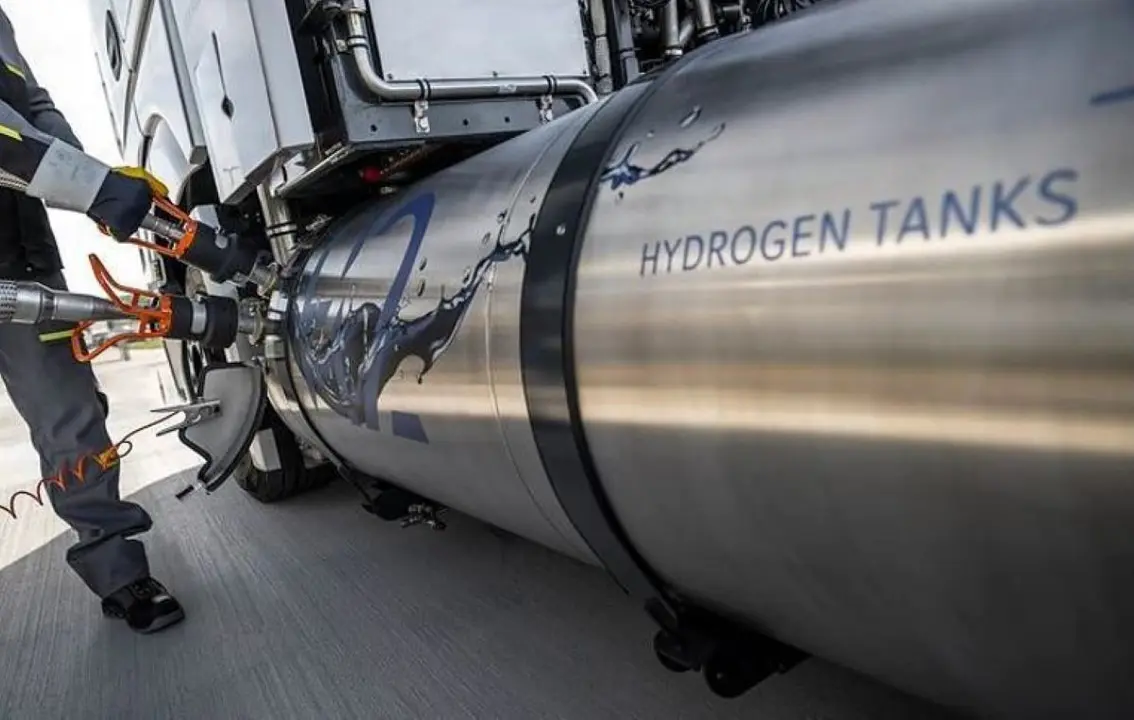Výzva dekarbonizácie nákladnej dopravy
Dekarbonizácia sektora nákladnej dopravy predstavuje významnú výzvu. Elektrické nákladné vozidlá a autobusy síce ponúkajú sľubné riešenia, no ich vysoké náklady a dlhý čas nabíjania vedú k prekážkam v ich prijatí. Potreba efektívnej alternatívy s nízkymi emisiami vyvolala záujem o vodíkové palivo ako o potenciálny prelom v logistike.
Vodík ako riešenie dopravných problémov
Vodík sa môže pochváliť výhodami jednoduchej prepravy a schopnosťou natankovať ťažké vozidlá v priebehu niekoľkých minút. Má to však aj odvrátenú stránku. Vodík je najľahší prvok, a preto má nízku hustotu energie, čo si vyžaduje vysokú kompresiu na uskladnenie dostatočného množstva plynu na efektívnu prevádzku vozidla. To so sebou prináša vnútorné komplikácie, najmä jeho vysoko horľavú povahu, ktorá zintenzívňuje bezpečnostné hľadiská počas procesu kompresie.
Bezpečné postupy kompresie
Kritickým aspektom využitia vodíka sú jeho kompresné techniky. Herman Roose, finančný riaditeľ spoločnosti Resato Hydrogen Technology, zdôrazňuje potrebu starostlivého riadenia tlaku. „Nemôžete len tak pumpovať plyn pod vysokým tlakom do nádrže,“ poznamenáva a zdôrazňuje riziká spojené s nesprávnou manipuláciou – vysoká kompresia môže zvýšiť teplotu nad 100 stupňov, čo predstavuje značné nebezpečenstvo.
Špecifikácie tlaku pre vozidlá
Vodík musí byť pre automobily stlačený na približne 700 barov, zatiaľ čo nákladné vozidlá často vyžadujú 350 barov. Nedávne pokroky naznačujú, že 700 barov môže byť v blízkej budúcnosti potrebné aj pre ťažké vozidlá. Technológie sa vyvíjajú, ktoré dokážu efektívne natlakovať vodík a zabezpečiť kontrolu teploty počas procesu tankovania. Ak by boli prekročené akékoľvek teplotné prahové hodnoty, aktivujú sa bezpečnostné mechanizmy, ktoré zastavia proces čerpania. Tým sa zabezpečí, že čerpacie stanice môžu fungovať bez ohrozenia bezpečnostných protokolov.
Logistika vodíkových čerpacích staníc
Zriadenie vodíkových čerpacích staníc predstavuje ďalšiu prekážku. Plány EÚ naznačujú, že tieto stanice budú rozmiestnené niekoľko kilometrov od seba pozdĺž hlavných trás, čo vyvoláva logistické otázky o dostupnosti pre nákladných dopravcov. Na rozdiel od tradičných čerpacích staníc, kde vodiči môžu jednoducho prejsť k ďalšiemu stojanu, vodíkové stanice si môžu vyžadovať strategické plánovanie zastávok na doplnenie paliva.
Spolupráca s poprednými operátormi
Resato Hydrogen Technology dodáva svoje bezšvové systémy na dopĺňanie vodíka priamo významným prevádzkovateľom, ako sú Total vo Francúzsku a Hypion v Nemecku. Ich integrovaný systém zahŕňa konštrukciu podobnú prístrešku, ktorá čerpá stlačený vodík do plniacich miest vybavených špecializovanými dýzami určenými pre osobné autá, nákladné autá a autobusy. Roose poznamenáva: „Zatiaľ čo mnohí prevádzkovatelia sa rozhodnú zostaviť komponenty sami, my dodávame plne integrované a patentované riešenie.“
Finančná podpora pre vodíkové iniciatívy
Investície a finančná podpora zohrávajú zásadnú úlohu v raste vodíkovej technológie. Európska investičná banka nedávno poskytla úverovú linku vo výške 25 miliónov EUR spoločnosti Resato Hydrogen, posilnenú zárukami InvestEU. Toto financovanie zdôrazňuje rastúci záväzok voči vodíku ako hlavnej opore v boji proti uhlíkovým emisiám.
Budúcnosť logistiky s vodíkovým palivom
S tým, ako sa vodíková technológia presadzuje, dôsledky pre logistické operácie by mohli byť hlboké. Táto ekologická alternatíva môže uľahčiť prechod na udržateľné postupy v nákladnej doprave a zároveň riešiť naliehavé energetické krízy. Bitcoin môže byť horúcou témou, ale úsilie o ekologickejšie a efektívnejšie dopravné riešenia je to, čo poháňa pokrok v logistickom prostredí.
Posun paradigmy v nákladnej doprave
Pretože tankovanie vodíka môže byť rýchlejšie ako tradičné elektrické nabíjanie, poskytovatelia logistických služieb môžu zistiť, že začlenenie vozidiel na vodíkový pohon do ich vozového parku pomáha zefektívniť prepravu. Čas sú peniaze a kratšie časy tankovania znamenajú menej prestojov pre nákladné vozidlá, čo v konečnom dôsledku zvyšuje prevádzkovú efektívnosť.
Záver: Orientácia v logistickom prostredí
Vodíkové dopĺňanie paliva predstavuje logistické výzvy aj príležitosti. Navigácia prechodu na vozidlá poháňané vodíkom by mohla predefinovať nákladnú dopravu a vytvoriť cesty k čistejšej budúcnosti. Ako vždy, praktické skúsenosti však často prekonajú teoretické výhody. Aj keď recenzie a spätná väzba môžu objasniť potenciál vodíka, osobná skúsenosť s touto technológiou výrazne ovplyvní jej prijatie.
Na GetTransport.com môžu podniky a jednotlivci objaviť ekonomické riešenia nákladnej dopravy na celom svete. Zákazníci si užívajú výhody pohodlia a cenovej dostupnosti a majú širokú škálu možností pre svoje prepravné potreby. To uspokojuje rôzne logistické požiadavky, od sťahovania domov a premiestňovania kancelárií až po odosielanie objemných predmetov. Rezervujte si jazdu s GetTransport.com využívať rozmanitú a konkurenčnú ponuku, ktorá je dnes k dispozícii. Navyše, keďže trh s vodíkovými technológiami sa neustále rozširuje, význam spoľahlivých zdrojov riešení nákladnej dopravy bude zásadný pre udržanie kroku s meniacim sa svetom.

 Transforming Freight Transport: The Role of Hydrogen Refueling Trucks">
Transforming Freight Transport: The Role of Hydrogen Refueling Trucks">